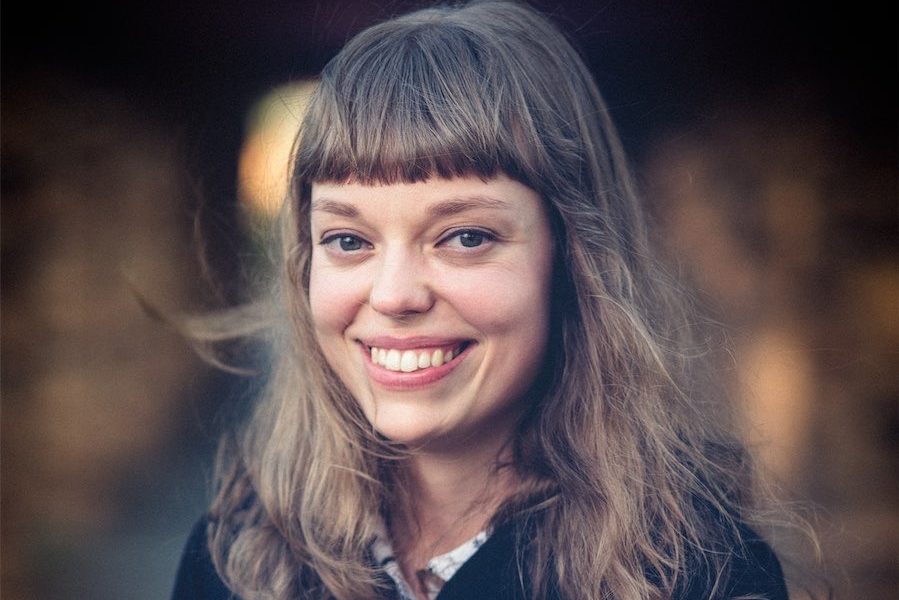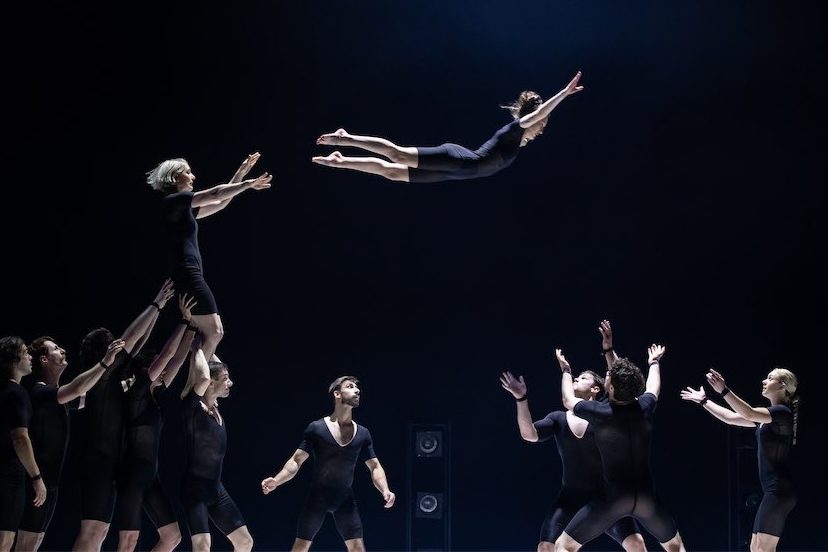
Theatre / “Bluebeard’s Castle”, Béla Bartók, at Sydney Opera House, March 5, 8 and 10. Reviewed by HELEN MUSA.
THE opening night audience at Sydney Opera House early this week greeted the tiny cast of “Bluebeard’s Castle” with more rounds of applause there than any within my living memory.
Possibly an expression of sheer relief at seeing something unfamiliar on the stage of the Joan Sutherland Theatre.
This was a very short evening of just 60 minutes dominated by the music rather than the theatre – a treat to the connoisseur. Handled adroitly by conductor/arranger Andrea Molino, evidently sympathetic to the sinister music, which dominated by insinuating woodwinds and brass, balanced with the harmonious sounds elicited from the OA string players at their finest.
Molina’s controlled approach to the often-violent music was well-matched by Daniel Sumegi as Bluebeard and Carmen Topciu as his newest wife, Judith, both singing in Hungarian is at the centre of this operatic performance which has only three more showings to go – a lot of trouble to go to, one would have thought, for such a short season.

Visually this production was dominated by John Rayment’s lighting design, which drew on the frequent references in Béla Balázs’ libretto to the need for more light in Bluebeard’s dark castle, to which Judith has just been introduced.
But oddly in such a musically disciplined production, the staging was busy and complicated with the famous seven doors of the Bluebeard tale presented as a moving set of cupboards and doors, wheeled around the stage by masked supernumeraries. This proved distracting in the extreme, although all the movement did elicit variety in Rayment’s lights.
Bartok and Balázs tweaked the Jungian elements of the ancient story— the dark lord of the castle who is rumoured to have killed all of his wives – into something more Freudian, with lashes of repressed sexuality and the wives behind the seventh door proving to be in a living hell, in the OA version possibly held in suspension by drugs.
There’s no getting around it, this is the story of a man who uses his neatly-arranged catalogue of wives for his own purposes as, without apology, he explains how he needs their tears to water his gardens, for instance.
The mixture of horror and beauty is nowhere so enticing as Sumegi, in a lyrical aria, elaborates on the things he looks for in a woman – the first wife represents dawn, the second midday, the third, the evening and the final one Judith, although plainly a modern woman, midnight.
The momentum in this work is created by the gradual stripping off of the layers as each door opens to reveal walls streaming with tears and untold riches stained with ineradicable blood, stirring, in Jungian teems, the collective unconscious.
In light of this, it seems highly doubtful that as directors Morton and Jackman have it in their interpretation (but not the original), that Judith and the three wives behind the seventh door should turn on Bluebeard.
What is credible is the series of exchanges between Bluebeard and Judith, beautifully captured by Sumegi and Topciu. Throughout the opera, Judith appears to hold the power of her sexuality as Bluebeard pants for her kisses and embraces and she demands, quite aggressively, to have each door opened. But at the same time there is a clear element of the female enabler in her characterisation that makes final acquiescence seem more likely than rebellion.
The orchestra had the last say, moving in response to both the lush scoring of the more lyrical sections and the less tonal contrasts of darkness and light, while the large wind and brass section, underscored with organ, celebrates the exercise of sheer power.
Who can be trusted?
In a world of spin and confusion, there’s never been a more important time to support independent journalism in Canberra.
If you trust our work online and want to enforce the power of independent voices, I invite you to make a small contribution.
Every dollar of support is invested back into our journalism to help keep citynews.com.au strong and free.
Thank you,
Ian Meikle, editor




Leave a Reply